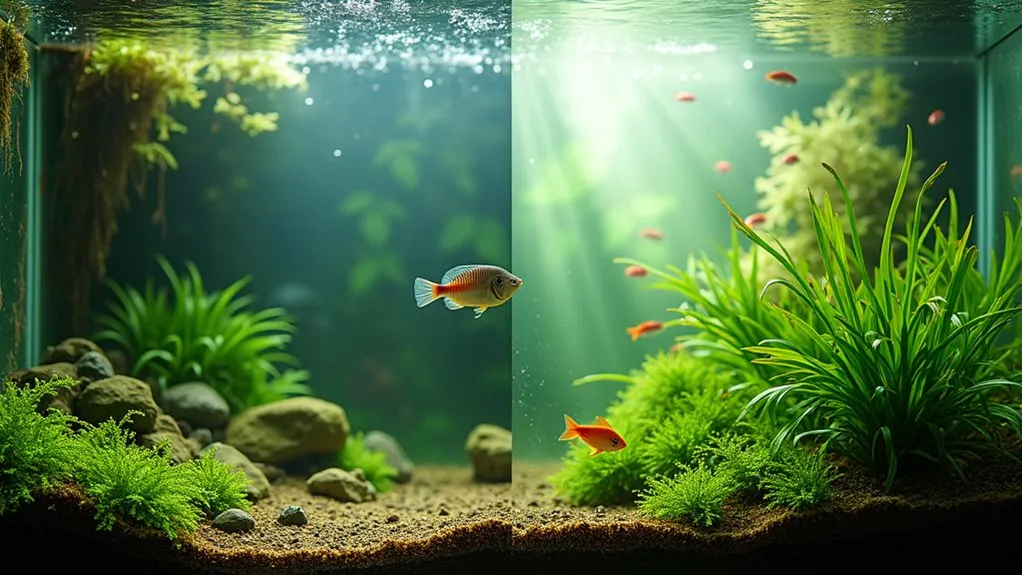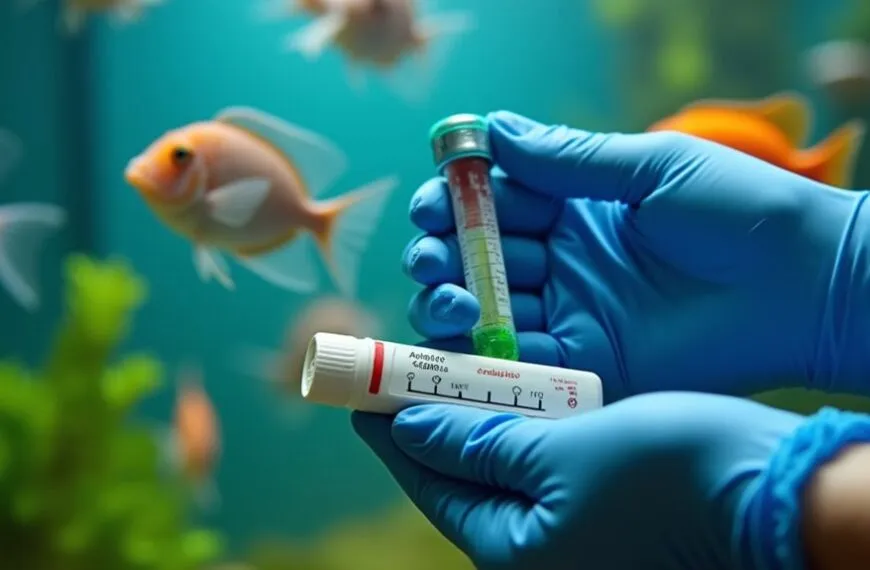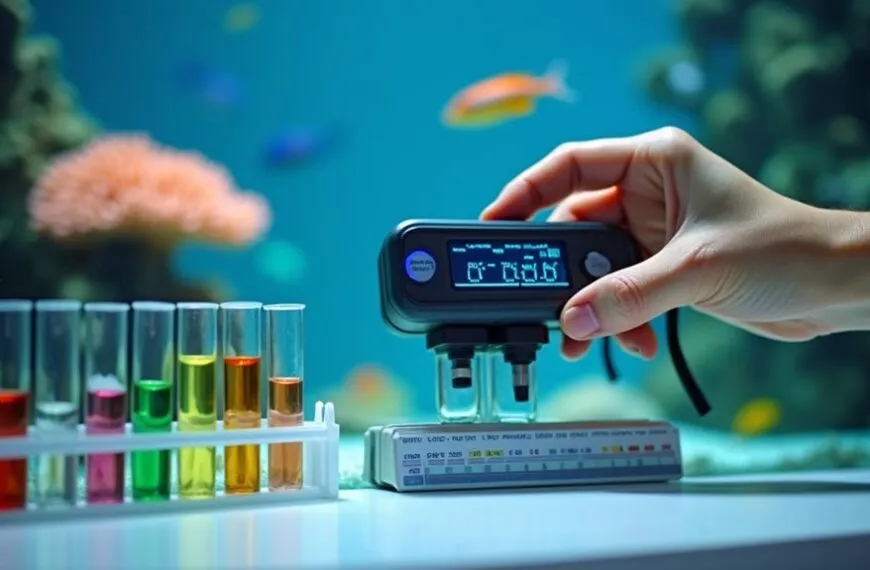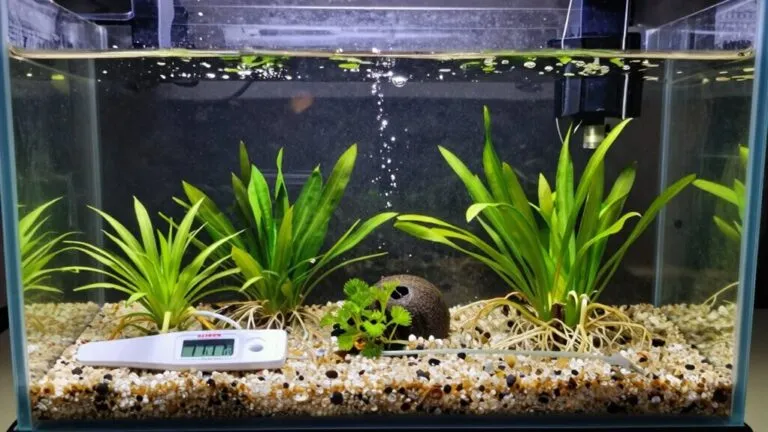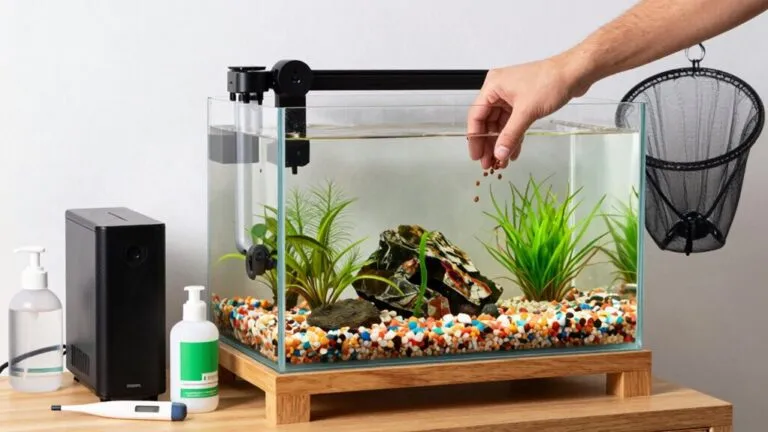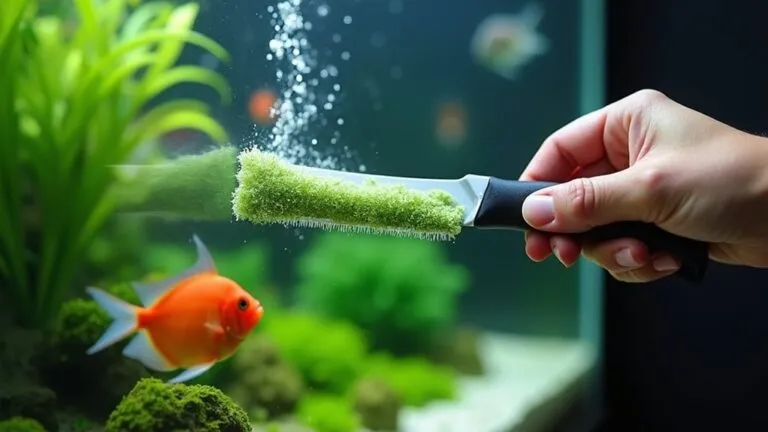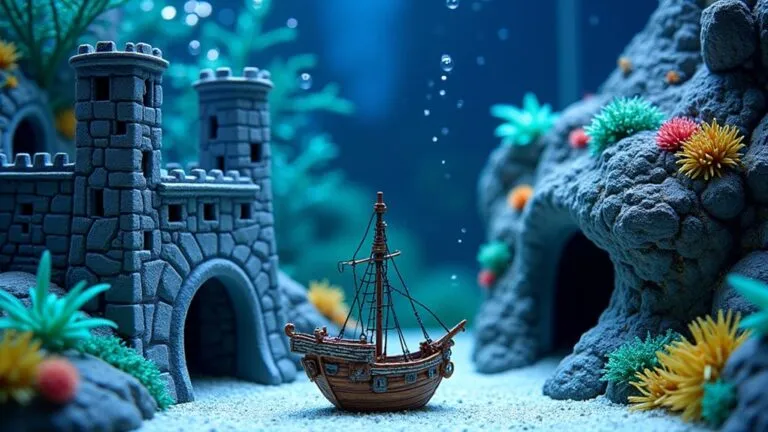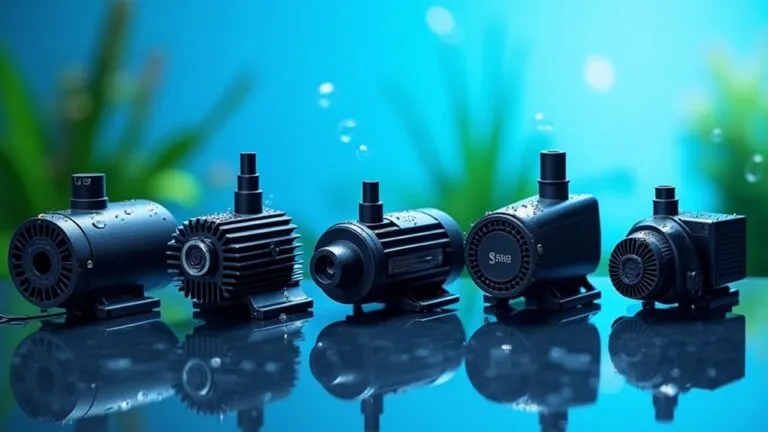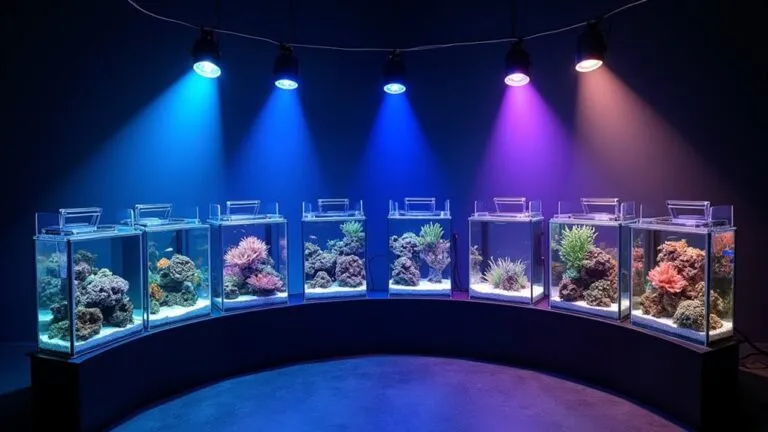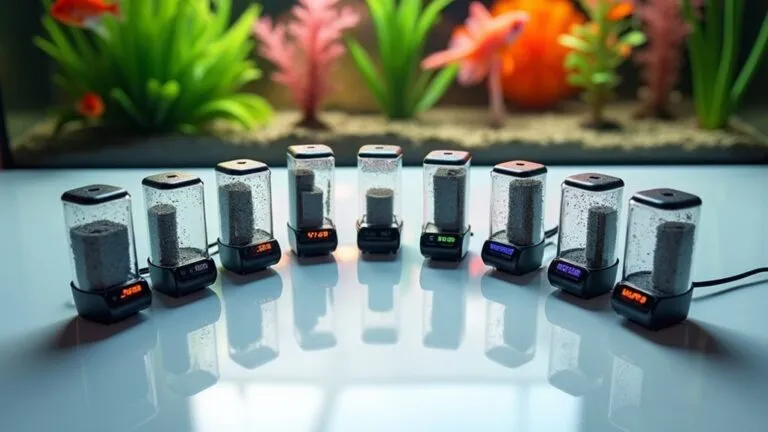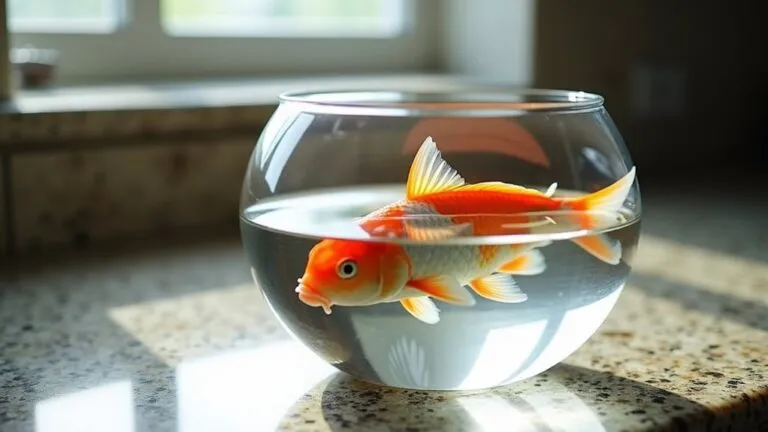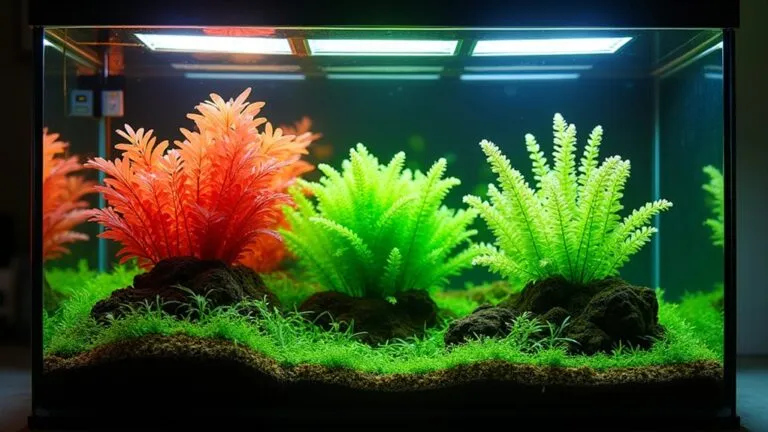Regular fish tank maintenance guarantees your aquatic pets thrive, not just survive. You'll maintain ideal water chemistry, prevent diseases before they start, and control unsightly algae growth. Your equipment will last longer with proper care, saving you money in the long run. Most importantly, you're creating a balanced ecosystem where fish display natural behaviors and vibrant colors. The time you invest in weekly maintenance builds the foundation for a spectacular underwater world your fish will thank you for.
Contents
- 1 Maintaining Optimal Water Quality and Chemistry
- 2 Preventing Disease and Promoting Fish Health
- 3 Controlling Algae Growth and Clarity
- 4 Extending Equipment Lifespan and Efficiency
- 5 Creating a Balanced Ecosystem for Thriving Aquatic Life
- 6 Frequently Asked Questions
- 6.1 How Often Should I Completely Replace All Tank Water?
- 6.2 What Cleaning Tools Are Essential for Proper Aquarium Maintenance?
- 6.3 Can I Use Tap Water Directly for Water Changes?
- 6.4 How Do I Safely Clean Decorations Without Harming Beneficial Bacteria?
- 6.5 Should I Remove Fish During Routine Tank Maintenance?
- 7 Final Thoughts
Maintaining Optimal Water Quality and Chemistry
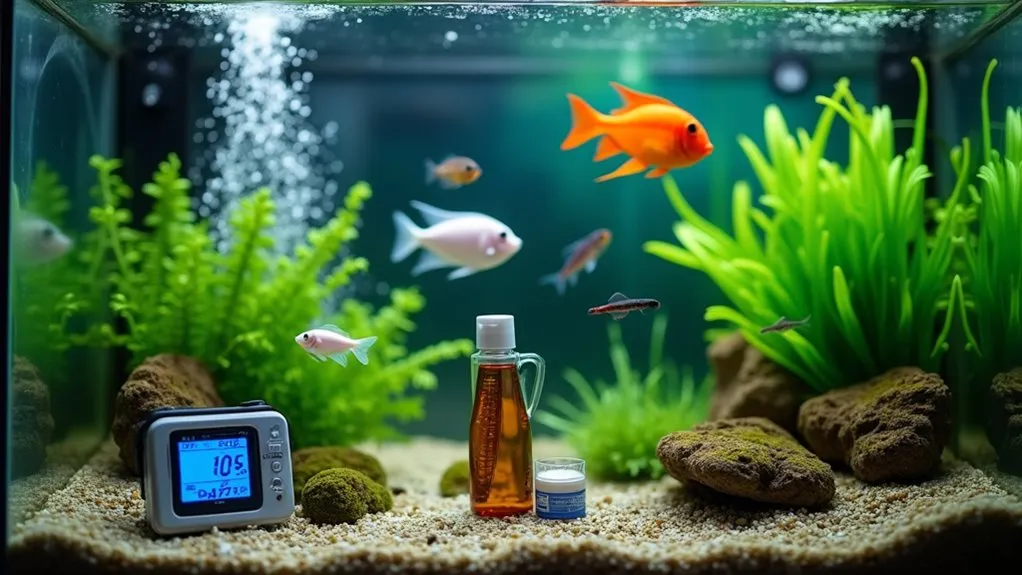
When it comes to keeping your fish happy and healthy, water quality is the foundation of everything. You wouldn't want to swim in dirty water, and neither do your finned friends! Regular water testing helps you monitor invisible changes that could harm your aquatic companions before any problems arise.
Think of chemical adjustments as your fish tank's wellness routine. Just like you need vitamins and minerals, your tank requires specific balances of pH, ammonia, and nitrates. When these get out of whack, your fish can become stressed or ill. Maintaining optimal pH levels is crucial for aquatic life, so keeping a close eye on those parameters will significantly contribute to your fish's well-being.
Don't wait until you see problems—by then, it's often too late. Make testing a weekly habit, and you'll create a thriving underwater paradise where your fish can flourish for years to come.
Preventing Disease and Promoting Fish Health
Healthy fish begin with preventative care, not just reactive treatments after problems appear. When you maintain your tank regularly, you're creating an environment where your finned friends can thrive.
Watch for changes in fish behavior—darting, scratching, or loss of appetite often signal early health issues before they become serious problems.
Regular maintenance dramatically reduces stress in your aquatic community. Remember, stress is the number one contributor to fish disease! By keeping water parameters stable, removing waste, and ensuring proper filtration, you're fundamentally giving your fish a stress-free sanctuary. Regular testing of water parameters will ensure that you can catch any issues before they impact your fish's health.
You'll enjoy watching your fish display their natural behaviors when they're healthy. There's nothing more satisfying than seeing your underwater community swimming confidently through crystal-clear water, showing off their vibrant colors—all because you've stayed on top of your maintenance routine!
Controlling Algae Growth and Clarity
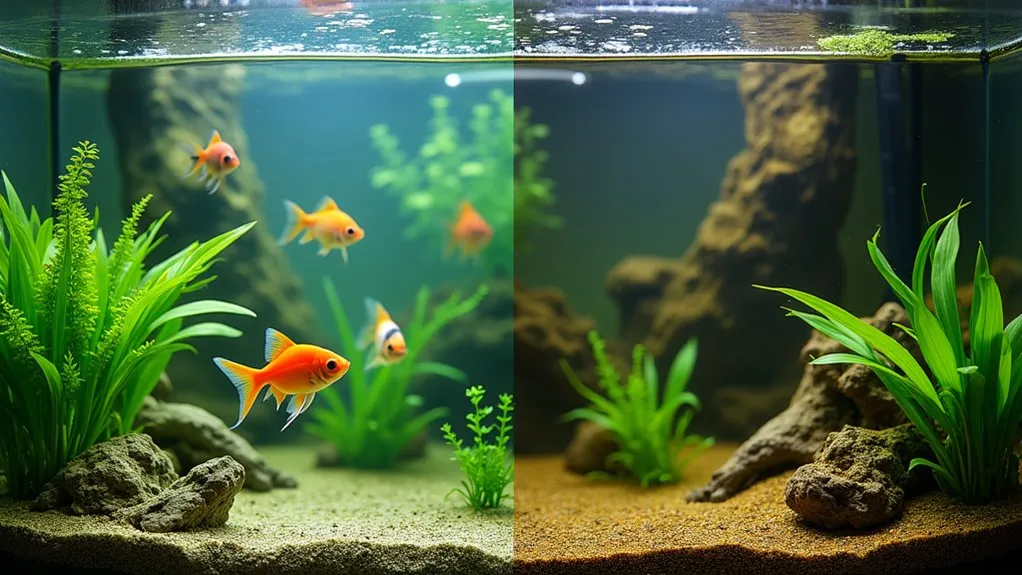
Although many aquarists dread the sight of green patches spreading across their tanks, algae growth doesn't have to be your aquarium's downfall. Regular maintenance is your secret weapon for effective algae control and pristine water clarity.
When you clean your tank weekly, you're removing the excess nutrients that feed unwanted algae blooms. You'll want to establish a consistent cleaning schedule that includes scraping glass surfaces, vacuuming the substrate, and changing 20-30% of the water.
Don't forget to rinse filter media in tank water (never tap water!) to preserve beneficial bacteria while removing trapped debris. Proper lighting cycles also play a significant role—most tanks need only 8-10 hours of light daily. Additionally, ensuring that your nitrate levels remain below 40 ppm can greatly help in controlling algae growth. Too much light is like rolling out the red carpet for algae! With these simple practices, you'll maintain a crystal-clear underwater paradise.
Extending Equipment Lifespan and Efficiency
While maintaining water clarity keeps your underwater world looking beautiful, protecting the equipment that powers your aquarium deserves equal attention.
Regular maintenance doesn't just benefit your fish—it dramatically extends the life of your filtration systems and postpones costly equipment upgrades.
Here's how proper maintenance preserves your aquarium technology:
- Clean filter media monthly to prevent clogging and maintain ideal water flow.
- Inspect heaters and thermometers quarterly for accuracy and potential damage.
- Remove mineral deposits from pumps and impellers to prevent premature failure.
- Check and tighten all connections to avoid leaks and electrical issues.
- Dust off external equipment like lights and timers to prevent overheating.
Additionally, proper water quality management will help ensure that your equipment operates efficiently without being damaged by harmful substances.
When you care for your equipment, it'll care for your underwater friends, saving you money and frustration in the long run.
Creating a Balanced Ecosystem for Thriving Aquatic Life
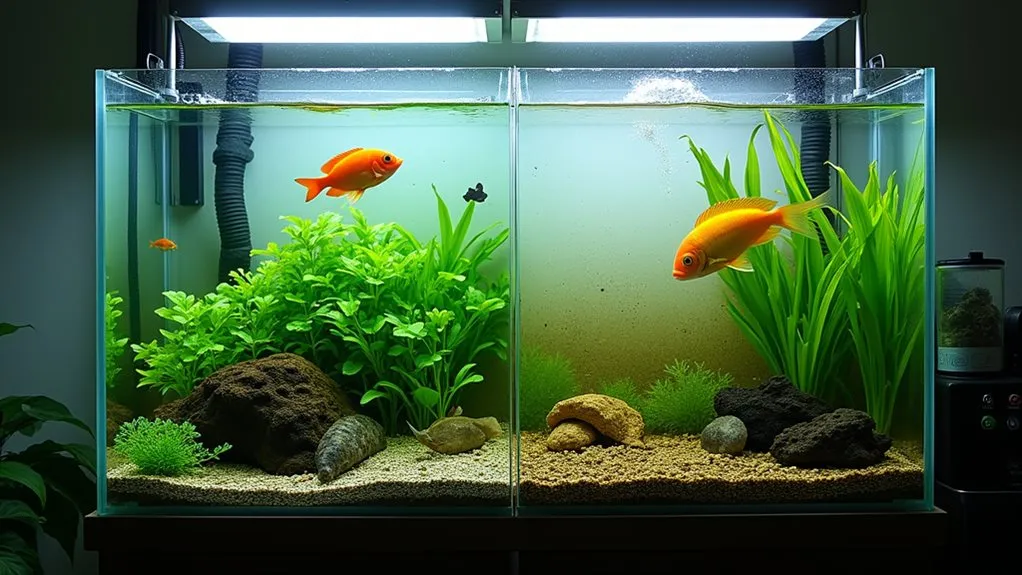
A truly remarkable aquarium goes beyond clean water and functioning equipment—it's a self-sustaining ecosystem where every element works in harmony.
Regular maintenance isn't just about cleanliness—it's about fostering aquatic diversity that mirrors natural environments.
Maintenance creates the foundation for diverse aquatic life to thrive in balanced harmony.
When you maintain proper water parameters and create habitat enrichment with plants, rocks, and hiding spots, you're building a mini-world where fish can display their natural behaviors.
You'll notice your fish exploring different levels of the tank, interacting with plants, and showing vibrant colors that indicate good health. By maintaining optimal water quality, you significantly enhance the longevity and vitality of your aquatic residents.
Frequently Asked Questions
How Often Should I Completely Replace All Tank Water?
You shouldn't completely replace all tank water. Instead, do partial water changes of 10-25% weekly or biweekly. This maintains beneficial bacteria essential to your tank cycling process, preserving water change frequency without disrupting your ecosystem.
What Cleaning Tools Are Essential for Proper Aquarium Maintenance?
You'll need a siphon vacuum to clean substrate and remove debris, an algae scraper for glass/acrylic surfaces, a bucket, water test kit, and aquarium-safe sponges for routine maintenance of your fish tank.
Can I Use Tap Water Directly for Water Changes?
Clear water isn't always safe. You shouldn't use tap water directly as it contains chlorine and heavy metals. Treat it with a water conditioner first to neutralize harmful chemicals and protect your fish health.
How Do I Safely Clean Decorations Without Harming Beneficial Bacteria?
To clean decorations safely, rinse them gently with tank water, not tap water. Use a soft brush for stubborn debris. Avoid soap or chemicals. This decorative item cleaning preserves beneficial bacteria that's essential for your tank's ecosystem.
Should I Remove Fish During Routine Tank Maintenance?
While removing fish causes fish stress, you needn't relocate them during routine maintenance. You'll maintain tank stability by keeping your finned friends home when performing partial water changes, light gravel vacuuming, and quick decoration cleaning.
Final Thoughts
Like Poseidon carefully tending his underwater domain, you're now equipped to be the guardian of your aquatic sanctuary. Remember, regular tank maintenance isn't just busywork—it's your fish's lifeline. You'll enjoy clearer water, healthier fish, and equipment that doesn't quit on you mid-swim. So roll up those sleeves and plunge into a consistent care routine. Your underwater friends will thank you with vibrant colors and playful antics!

